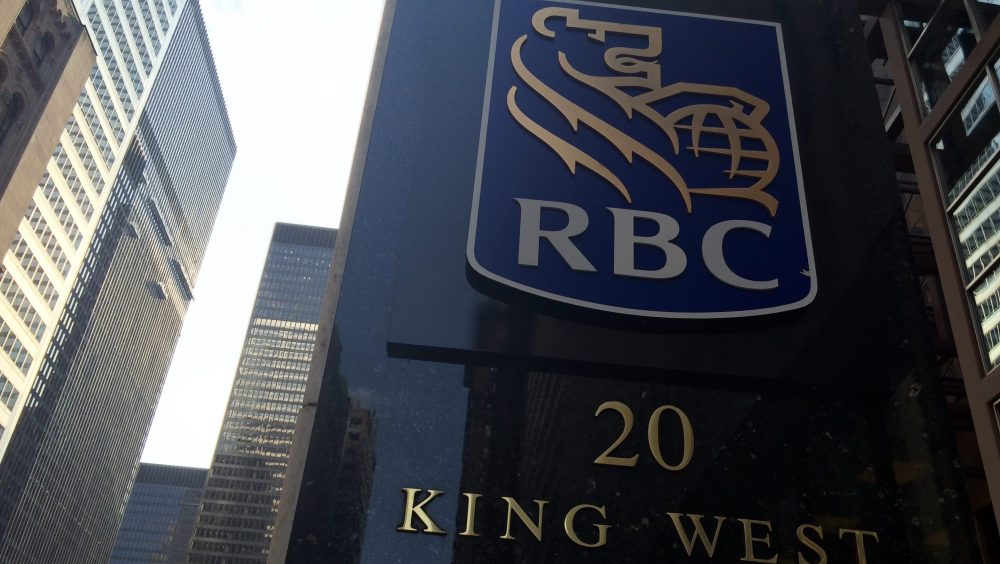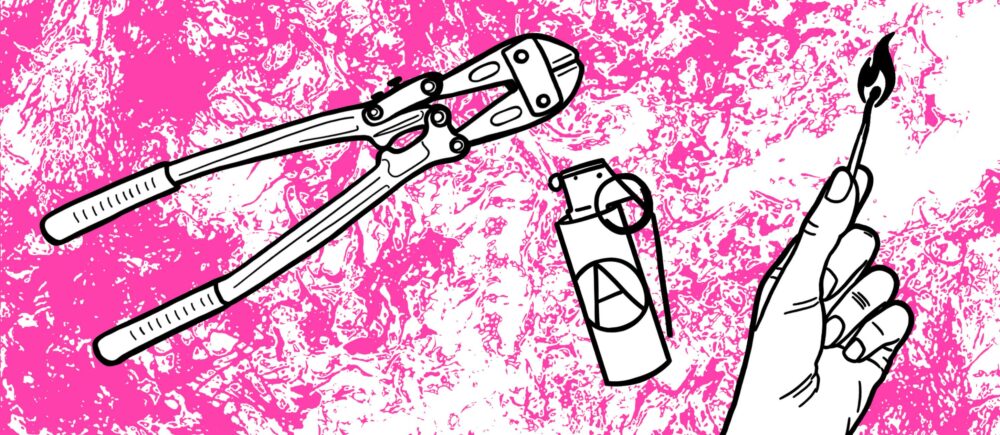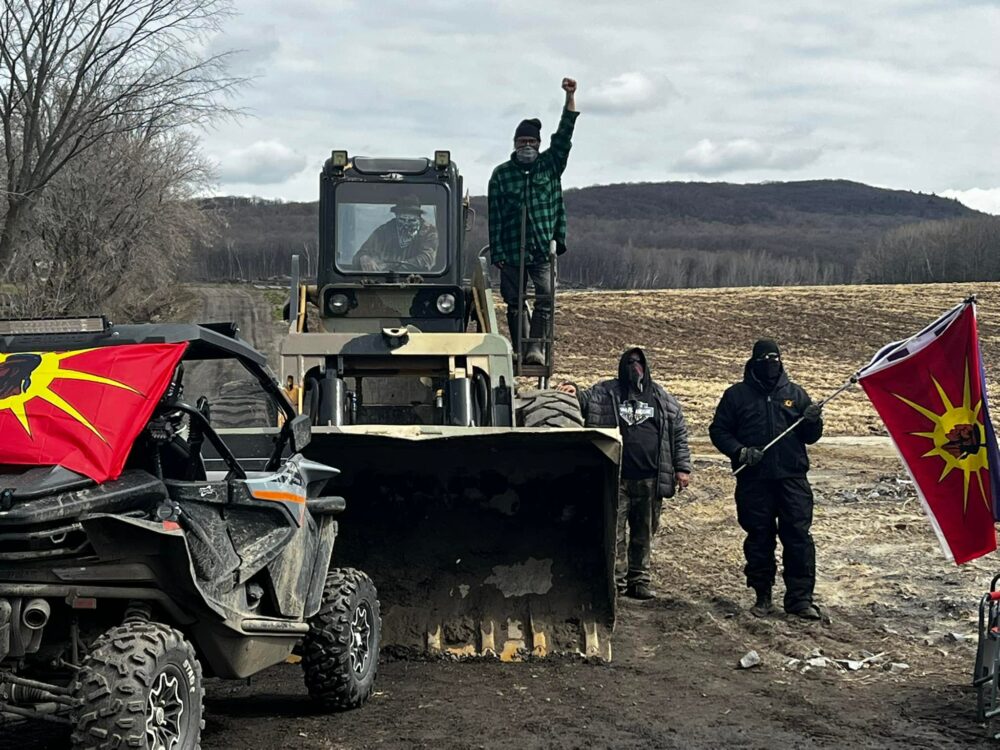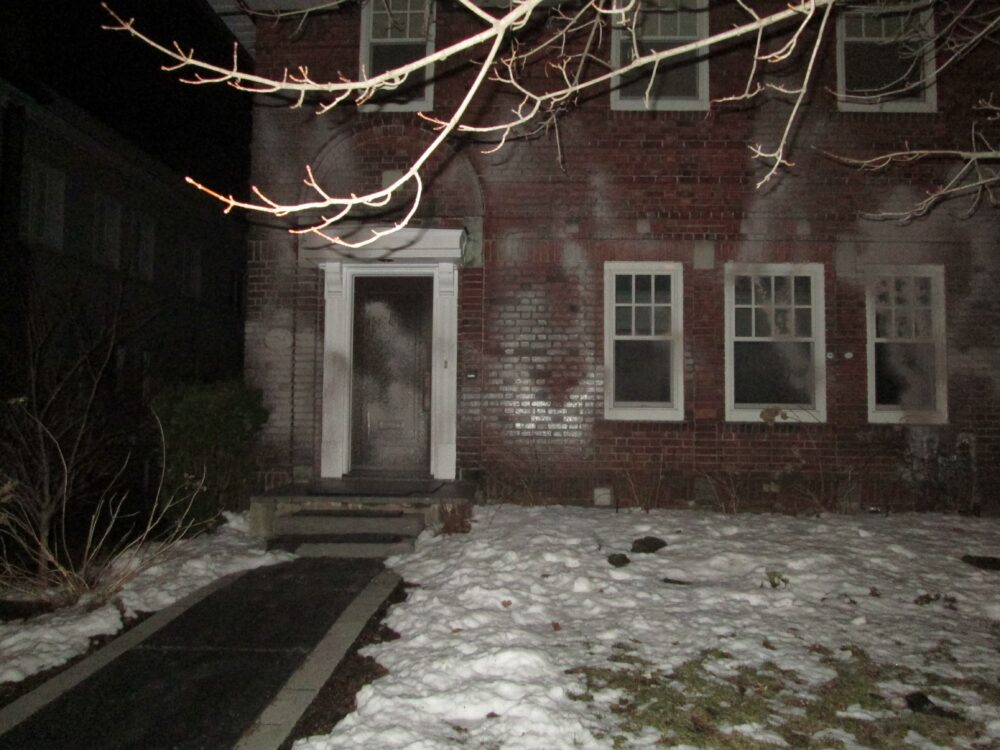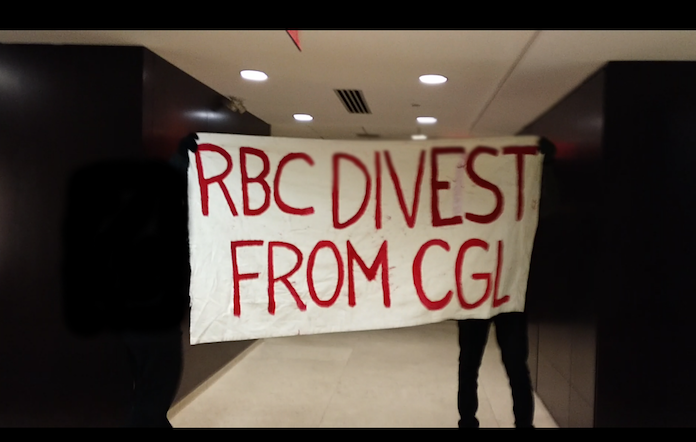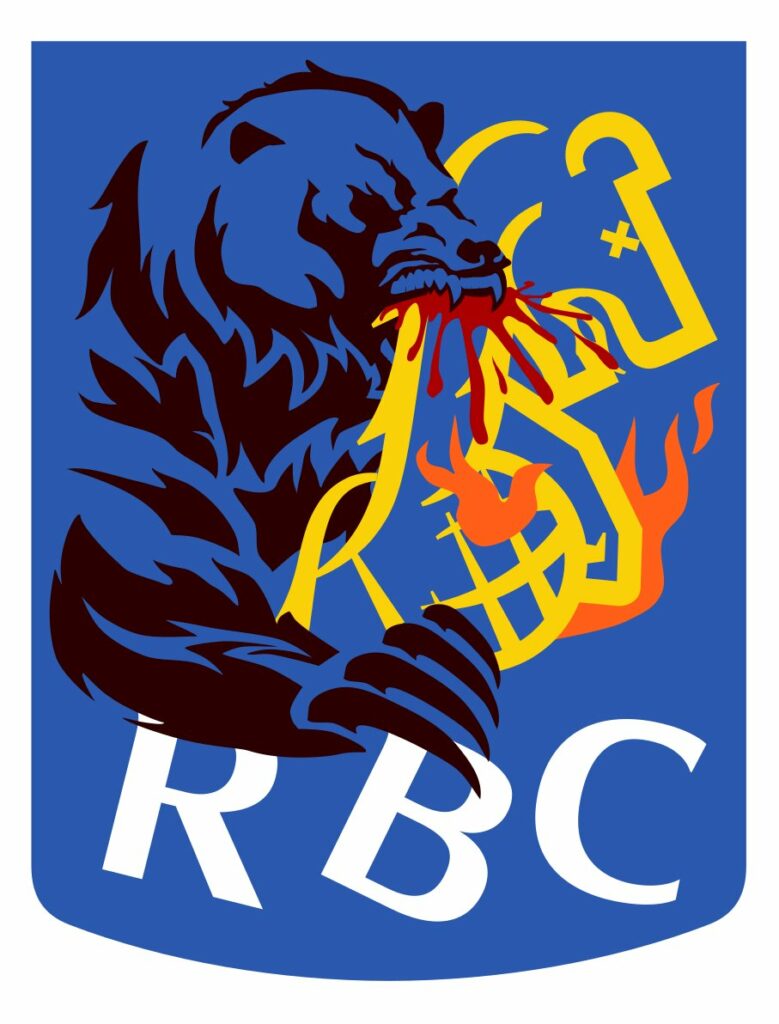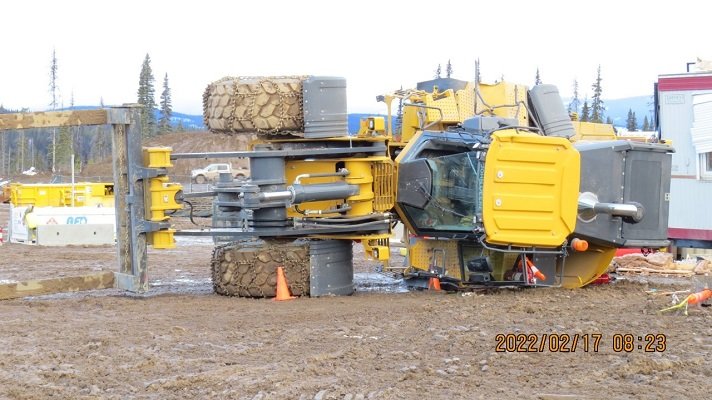Anonymous submission to MTL Counter-info
Monday April 11th, 2022
Tiohtià:ke/Montreal
In the early afternoon, a small group of anarchists snuck into the RBC offices at Place Ville-Marie. Armed with flyers, stickers and spray paint cans, they left a message for the bank: DIVEST FROM CGL. Since the Fall of 2021, the Wet’suwet’en have been actively campaigning for RBC to stop funding the destruction of their land, but RBC continues to ignore them.
As long as RBC is funding pipeline projects, they will find us in their way.
– some fucking angry anarchists
Reflections On Ongoing Anticolonial Solidarity:
Imminent Threat: Coastal Gaslink (CGL) is set to drill under the Wedzin Kwa this Spring 2022. The people, land, language and culture of Wet’suwet’en as well as the animals residing on these territories are facing annihilation of their lifeways. For those who have heard the call to action, this upcoming year is crucial to the future of Wet’suwet’en self-determination and sovereignty.
Solidarity actions keep the Gidimt’en fight visible and the people on the frontlines safer from police repression and CGL harassment (https://twitter.com/Gidimten/status/1450808498833473549) Just in the past month alone, the RCMP made 54 visits to Gidimt’en Checkpoint, waking elders at all hours of the night and threatening arrest. These ongoing acts of intimidation and police repression are a part of a broader strategy by the Canadian state to use the legal and judicial systems to continue to deny Wet’suwet’en sovereignty, despite the fact that the Canadian judicial system recognized Wet’suwet’en sovereignty in the Delgamuukw v British Columbia decision.
Longterm Struggle: Commitment is a long breath that is constantly threatened by exhaustion. This struggle against CGL takes on many dimensions: decolonial, environmental, anti-capitalist and feminist. The numerous “man camps” invading the Yintah intensifies and facilitates men’s ability to kidnap, rape and murder Indigenous women, girls and two-spirited individuals (see the Final Report by the National Inquiry into Missing and Murdered Indigenous Women and Girls, p. 593). As long as CGL and the RCMP remain on the territory so too do the heightened levels of colonial gendered violence.
We continue to support Gidimt’en Checkpoint’s fight against Coastal GasLink and extractive companies because the struggle towards Indigenous self-determination is a long, arduous struggle. Solidarity organizing is most effective when it is consistent and strategic. Our ongoing efforts contributes to the strength and `visibility of their fight for self-determination, sovereignty, and freedom.
Imagine the strength and capacity of solidarity work if people engaging in this kind of organizing had personal and collective stakes in the game? For instance, there are many Indigenous people fighting across Turtle Island to be free from the settler state and to be free to govern themselves as they deem in accordance to their own ways. There are also many non-Indigenous people fighting to be as free as they can from the institutionalization and regulation of their bodies, relationships, and communities. These varying experiences and histories of struggle provide a basis for profound points of connection.
Imagination is an asset when it facilitates various ways to make this fight visible. Adapt the tactics and organizing strategies to your capacities and resources. Most importantly, act. It’s time.
